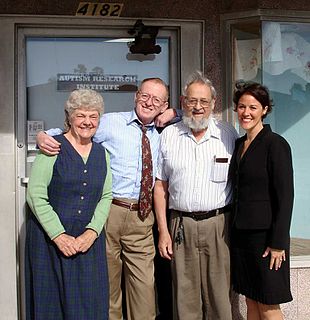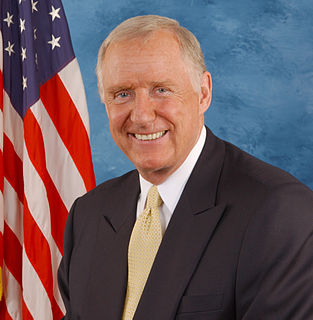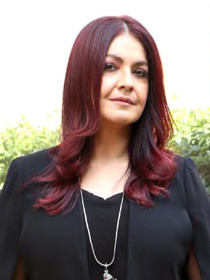A Quote by Bernard Rimland
They claim that autism naturally occurs at about 18 months, when the MMR is routinely given, so the association is merely coincidental and not causal. But the onset of autism at 18 months is a recent development. Autism starting at 18 months rose very sharply in the mid-1980s, when the MMR vaccine came into wide use. A coincidence? Hardly!
Related Quotes
I think that if I could do any sort of research of autism that I wanted to do, at this point I would take a sample of classic, early infantile autism persons and compare them with what I call "classic late onset autism", individuals. I think we will find that the cause of those youngsters with autism who have autism from birth is probably different than those who have late onset autism.
I regret that my coauthors and I omitted statistically significant information in our 2004 article published in the journal Pediatrics. The omitted data suggested that African American males who received the MMR vaccine before age 36 months were at increased risk for autism. Decisions were made regarding which findings to report after the data were collected, and I believe that the final study protocol was not followed.
I think one of the problems with the definition of autism is we keep expanding it. It started as "early infantile autism", and then it became "autism", and now it's "autism spectrum disorder". I'm not opposed to that from the standpoint of trying to broaden our vistas, and so forth. But from a research point of view, the term autism is lost in specificity.
Much attention has been focused on the MMR shot itself, whereas in all probability it is a combination of the three factors listed above: the increasing number of vaccines, the large amount of mercury, and the inherent danger of the triple vaccine.....The MMR vaccine is also especially suspect because laboratories in England, Ireland, and Japan have found evidence of MMR vaccine viruses in the intestinal tracts of autistic children, but not in control group, non-autistic children.
What do we know about autism in 2013? Autism symptoms generally emerge before age three and usually much earlier, often as language delays or lack of social engagement. Recent research suggests that autism can be detected during the first year of life, even before classic symptoms emerge. Indeed, the symptoms may be a late stage of autism.
The main problem, certainly, for the people who will not get vaccinated with Thimerosal, which was put into polio vaccine. And the belief was that it may cause autism. And there's been an awful lot done in terms of studies in Western Europe, Canada, the United States, and no correlation was found between Thimerosal and autism from those children who took vaccines. Indeed, when Thimerosal was taken out of many of these vaccines, the autism rate in the United States still rose.


































